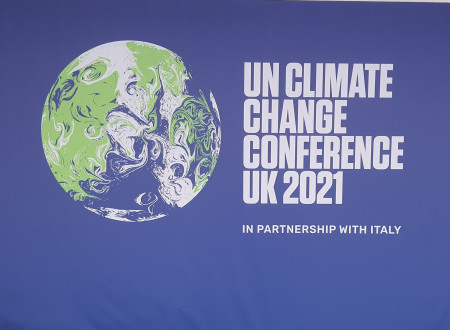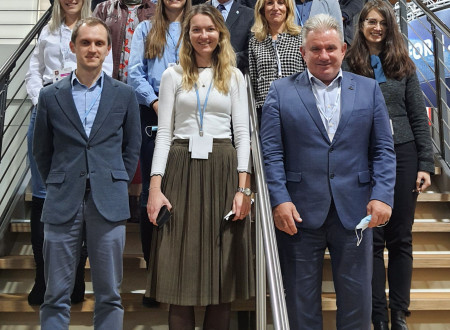COP26 — significant progress made but further efforts needed to reach the 1.5 degree objective
- Ministry of the Environment and Spatial Planning
In the final declaration, countries called for enhanced mitigation action in the current key decade, as achieving the 1.5 degrees target will require a 45% reduction in CO2 emissions by 2030 (compared to 2010). Minister Vizjak pointed out: "Now would be the time to take bold and responsible decisions to act – both for the sake of this planet and for the sake of young generations. We are ready to continue our work."
Andrej Vizjak, Slovenian Minister of the Environment and Spatial Planning and current chair of the Environment Council, said: "I am very pleased that the Slovenian Presidency has been able to contribute to the overall result, as we have advocated for the adoption of a comprehensive and balanced outcome in order to ensure progress for the benefit of all." However, he cautioned: "We cannot expect all open issues to be resolved here in Glasgow; some will remain on the agenda for future negotiations. Responsibility for achieving the goals of the Paris Agreement is a shared commitment by all of us. We must do everything we can to significantly increase our climate ambition. Only together can we achieve common goals for a better future."
The EU has sought to set highly ambitious goals in all areas, insisting on several elements: reference to science, processes to maintain the momentum, the call for ambitious NDCs and strategies to achieve net zero emissions by mid-century, as well as the need to increase climate finance to help developing countries, including for adaptation to climate change.
The ambitious goal to mitigate climate change is particularly important, as global greenhouse gas emissions need to be cut significantly already this decade if the 1.5 degrees Celsius target is still to be met. "We must each take our share of the responsibility to ensure that our collective efforts are effective," stressed Minister Vizjak. He proceeded to point out: "The European Union has been implementing its part of tasks. Our goals have been written into law: –55% by 2030, climate neutral by 2050."
Good progress has been made thus far on financial issues. At this summit, a number of developed countries pledged to increase their financial contributions to developing countries so that we expect the target of USD 100 billion per year to be reached in the coming years. In addition, this meeting launched a process on providing assistance on the part of developed countries to developing countries in order to set a new collective financial target after 2025.
Countries that have not yet submitted their new or updated Nationally Determined Contributions (NDCs) and long-term climate strategies were invited to do so by no later than the next COP meeting. All parties were also invited to strengthen their NDCs by the end of 2022 in line with the Paris Agreement goal and the latest scientific findings. Agreement has therefore been reached on convening an annual ministerial meeting to strengthen the 2030 climate ambition.
In Glasgow, the following stronger commitments were made: India is set to achieve climate neutrality by 2070 and a 50% target for renewable energy sources by 2030; the US is set to adopt a long-term climate strategy for climate neutrality; South Korea is set to update its NDCs to 40% compared to 2018; Nigeria is set to become climate neutral by 2060.
The Paris Agreement rulebook was also finalised at the conference. The last missing elements were adopted, i.e. the time frames for nationally determined contributions, the rules for international carbon markets (Article 6) and the rules on transparency in reporting. This concludes negotiations on the rulebook after six years and allows us to focus on the implementation to achieve the Paris Agreement goals.
The Global Methane Pledge was adopted, committing the signatories to reduce methane emissions by 30% by 2030. In addition, the Declaration on Forest and Land Use was adopted.
The EU will continue to support the global climate agenda and the work of all non-party stakeholders in the fight against climate change.
More information - Conference conclusions



